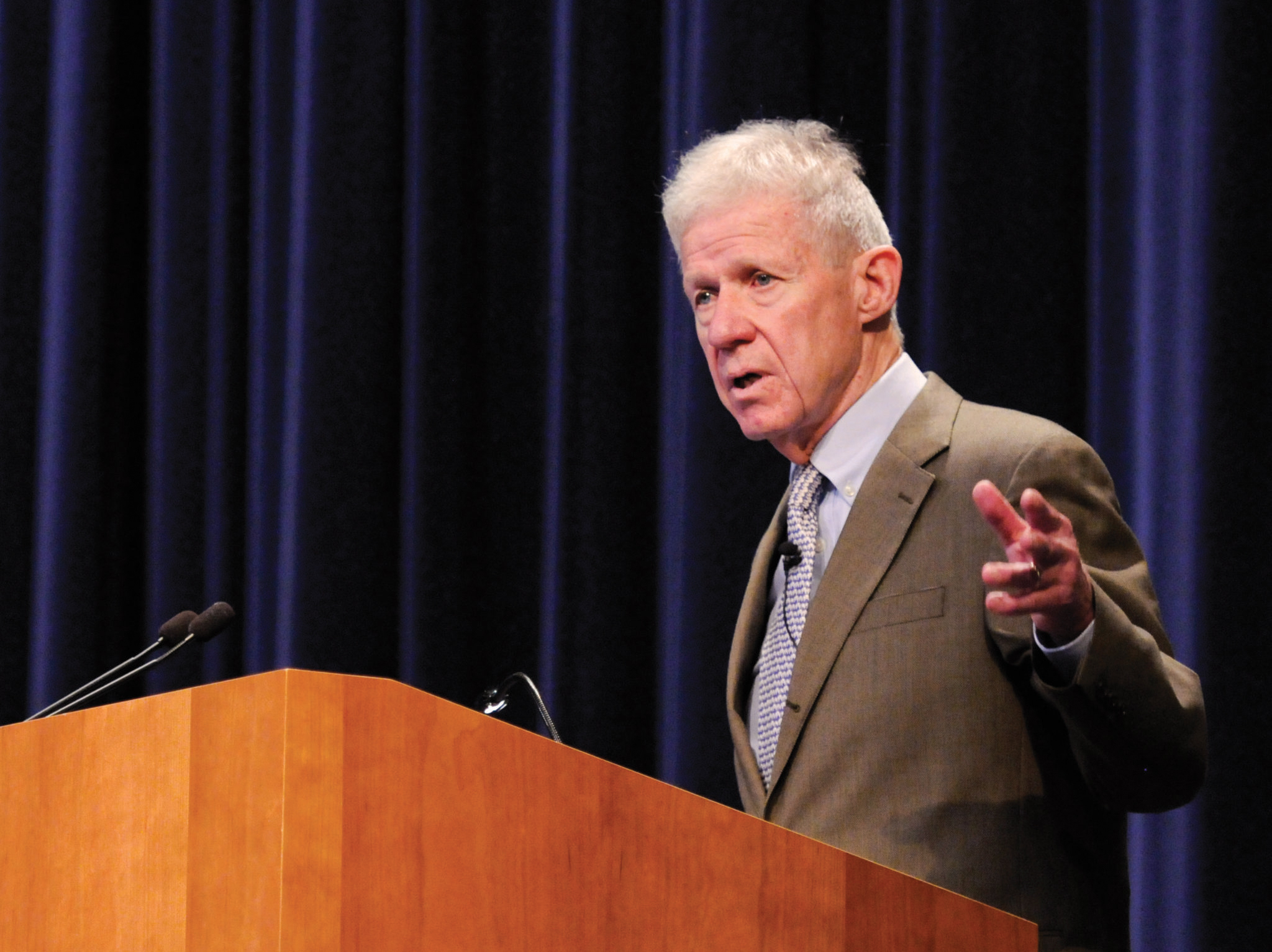
Wikimedia Commons
My dear friend and esteemed professor,
How sorry I am for the time that has passed since I last wrote. The country and world are changing at a pace faster than I can appreciate; the magnitude of humanity’s crises and catastrophes seem to only be expanding. While distracted with my professional pursuits in the midst of a pandemic, the news of your loss brought with it an emotion I felt most acutely when my late grandfather died in Jerusalem.
You see, Professor Hill, like my grandfather was, you were less a diplomat or a professor in my eyes than you were a teacher, in the purest form of the word. My academic experience at Yale was the single best educational opportunity I ever had or will have, and it was so objectively enhanced by the privilege of being your student. The door you kept open for me on Hillhouse Avenue, and those dozens of conversations we had, are a treasure that I will carry with me eternally.
As I reflect on our time together in what seems like an age ago, two distinct lessons come to mind that I would like to share. The first is something you told me after I completed the Grand Strategy program: ideas, especially the ones that matter, are the most powerful forces. The world of ideas, and a collective affinity for them, was the essence of what you taught generations of students at Yale. Still today, it is the pursuit of worthy ideas, and working toward their implementation, that most enthuses me.
My second such memory revolves around our shared admiration for and love of George Washington. That we both found in him something so essentially and permanently compatible with the contemporary American spirit was the theme of a paper I submitted for your Aristotelian Statecraft course. President Washington, Fabius of his time, understood something that you asked me to always remember and apply on my own journey; the need to remain flexible, through all of life’s intricate contexts.
The sorrow I feel, for myself and for Yale, because of your loss is something that only time can heal. While life must now progress to a stage where I no longer have you as an infinitely substantive resource to draw upon, the value of your wisdom remains evident.
There is a saying in Palestinian and Arab society that is often shared at funerals, to console the grieving: he who has heirs, never really dies. I would amend that slightly: he who invests in the intellectual development of his students, never really dies.
It is in celebration of your memory as one of Yale’s most valuable teachers that I bid you farewell, Professor Hill, with the promise that the ideas we were so mutually devoted to shall live on, now and forever.
In truth and trust,
Mohammad A. Salhut ’14
Mohammad Salhut | mohammad.salhut@yale.edu







